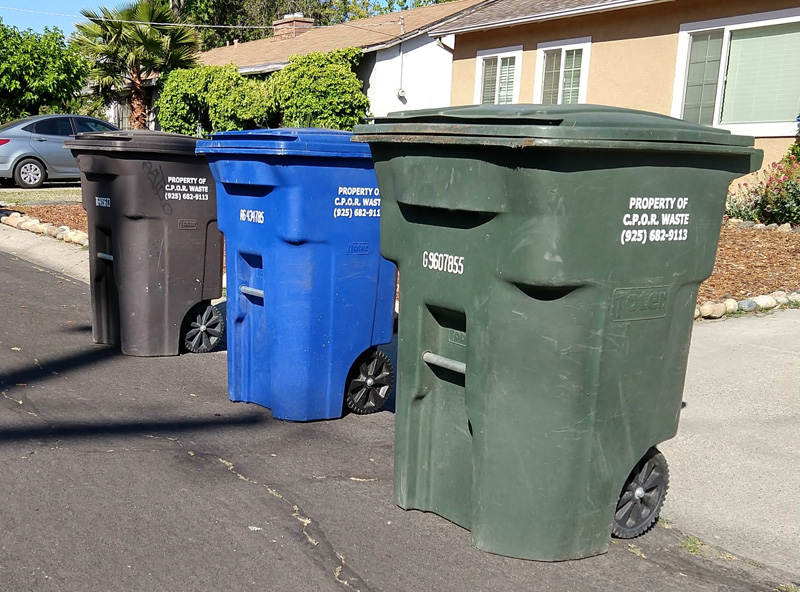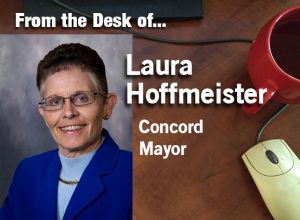Food waste recycling starts Sept. 4 in Concord

 CONCORD, CA (Aug. 17, 2023) — A new state law, SB1383, makes it mandatory for all residents to recycle their organics (food waste) weekly.
CONCORD, CA (Aug. 17, 2023) — A new state law, SB1383, makes it mandatory for all residents to recycle their organics (food waste) weekly.
All cities have been working with their collection haulers to implement this new state mandate. Starting Sept. 4, single-family Concord residents will be able to place food waste into their “yard waste” green carts, which will then be called “organics carts.”
These carts will still be used for yard waste but also allow food waste. Place the cart out weekly on your scheduled collection day.
To help with food waste recycling, Mt. Diablo Resources Recovery (MDRR), our collection service provider, has started delivering two-gallon bright green food scrap pails to all customers – with delivery completion by Oct. 1. You can use it to store kitchen food scraps and food-soiled paper, then empty the contents into your large green yard waste cart. If you don’t have your pail by Sept 4, or you have it and don’t want to use it, you may also use a paper bag or directly place food scraps into your yard waste cart starting Sept 4.
When your green cart is picked up each week, MDRR will divert this material to a compost facility where it is converted into soil-enriching compost instead of being buried in the landfill.
What goes in the bin?
You may be wondering – as I was – what goes in the organics pail and cart? Here’s a short guide:
- Food: Bones, shells and raw, cooked or spoiled food scraps of any variety.
- Food-soiled paper: Napkins, paper towels, paper-based take-out containers, pizza boxes and coffee filters.
- Green waste: Brush, branches (less than 4 feet in length and 3 inches in diameter), lawn and plant clippings, shrubbery, twigs, weeds and wood chips. (No dirt.)
- You can place newspapers or paper bags to line the food waste bucket.
- You cannot put biodegradable plastics, BPI certified or plastic bags in the food waste. Also, no pet waste.
The initial delivery of these pails will be for traditional single-family residential, followed by apartments and townhomes/condos with homeowners associations. Commercial businesses have already been started.
This state law was created to reduce methane gas emissions, decrease the amount of material taken to landfills and improve environmental sustainability. Certain practices, such as dumping food scraps in the landfill, lead to higher levels of methane, which harms the earth’s ozone layer and adversely impacts climate change.
Currently, more than 50% of our landfill is comprised of organic waste, including food, green waste and food-soiled paper.
Food scraps create methane when they are buried in landfills, because methane-producing microbes become active beneath the soil. But when food scraps are exposed to oxygen during the process of creating compost, these microbes are not active.
Doing your part
We can all do our part to help, and recycling our food waste is one of the simplest ways to reduce the amount of material that goes into the landfill and cut methane emissions, which are a “super pollutant” that is more than 84 times more potent than carbon dioxide.
All MDRR customers will receive more information about this program in an upcoming customer bill/newsletter. If you have questions, please visit www.mdrr.com.
Direct your questions and comments to the mayor at 925-671-3158 or Laura.Hoffmeister@cityofconcord.org.
